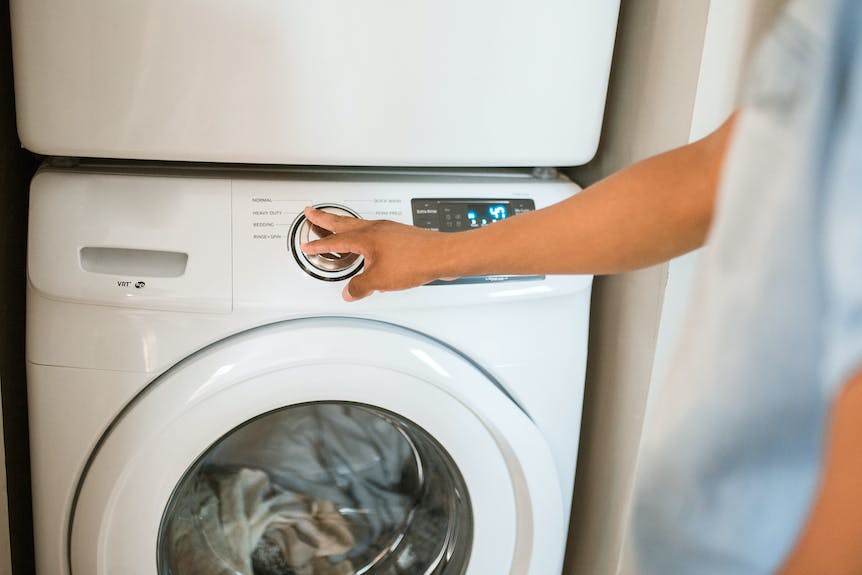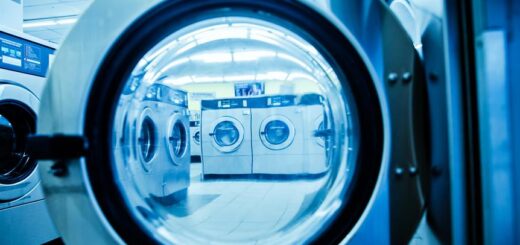11 Ways To Fix a GE Washer Not Spinning Clothes Dry!

Are you tired of your GE washer leaving your clothes wet? Look no further! In this article, we have 11 effective ways to fix your washer and get your clothes spinning dry.
From checking power connections to properly loading your laundry, we will cover all the bases.
No more frustration or damp clothes – with our expert advice, you’ll have perfectly dry laundry in no time!
Loose Power Connection
First, check for a loose power connection in your GE washer. Preventing power interruptions is crucial for the proper functioning of your washer. Ensure proper power cord placement by making sure it’s securely plugged in. Avoid using extension cords and plug directly into the wall socket. If you must use an extension cord, ensure it’s powerful enough and doesn’t overheat. Overheating can cause power disruptions.
Laundry Unevenness
To address laundry unevenness in your GE washer, ensure your clothes are evenly distributed inside the drum. This will prevent laundry imbalance and promote balanced distribution for better spinning results.
Here are some tips to achieve this:
- Separate heavy items from light ones: Avoid mixing heavy towels or jeans with delicate garments to prevent imbalance.
- Arrange clothes evenly: Spread them out and avoid clumping or overcrowding in one area of the drum.
- Use a laundry bag for small items: Place socks, lingerie, or other small items in a mesh bag to prevent them from getting tangled or causing imbalance.
Laundry Overload
When your GE washer is not spinning clothes dry, it is important to address the issue of laundry overload by ensuring that you do not exceed the recommended load capacity. Preventing excessive load and achieving balanced spinning are key to resolving this problem. To help you understand the recommended load capacity for your GE washer, refer to the table below:
| GE Washer Model | Load Capacity (lbs) |
|---|---|
| Model 1 | 10 |
| Model 2 | 12 |
| Model 3 | 14 |
| Model 4 | 16 |
| Model 5 | 18 |
Wrong Cycle Setting
To ensure your GE washer effectively spins clothes dry, selecting the correct cycle setting for your specific laundry needs is crucial. When you choose the wrong cycle setting, it can lead to issues such as clothes not spinning dry or even clothes damage. Here are some important points to consider:
- Adjusting spin speed:
- Choose a higher spin speed for heavier and thicker laundry.
- Lower the spin speed for delicate or fragile fabrics.
- Prevent clothes from getting damaged by excessive spin.
Preventing clothes damage:
- Avoid using hand-wash or delicate setting for bulky clothes.
- Choose the appropriate setting for different types of clothes.
- Select a cycle that provides gentle care for delicate fabrics.
Poor Water Drainage
If your GE washer is experiencing poor water drainage, your first step is to check for a clogged filter and clean it.
Common causes of poor water drainage in GE washers can include debris accumulation in the filter, which restricts water flow and hinders proper drainage. To troubleshoot and fix clogged filters in GE washers, locate the filter, typically located at the bottom front of the machine.
Remove the filter cover and inspect for any debris or blockages. Clean the filter thoroughly by rinsing it under running water or using a soft brush to remove any buildup.
Once the filter is clean, reinstall it securely and ensure proper water drainage for optimal washer performance.
Checking for Loose Power Connection
Check the power cord of your GE washer to ensure it’s securely plugged in. Troubleshooting power supply problems is crucial when dealing with a washer that isn’t spinning clothes dry. Here are some potential power cord issues to consider:
- Loose power connection: Ensure the power cord is properly plugged in to avoid any loose connections that may disrupt the power supply.
- Avoid using extension cords: It’s recommended to plug the washer directly into the wall socket to prevent any power loss or overheating caused by extension cords.
- Use a powerful enough extension cord if necessary: If using an extension cord is unavoidable, make sure it’s of sufficient capacity to handle the power requirements of the washer.
Also check: GE Vs Whirlpool Washing Machine
Dealing With Laundry Unevenness
Ensure your laundry load is evenly distributed to prevent any imbalance during spinning.
Preventing laundry imbalance is crucial for achieving even spinning and ensuring that your clothes come out dry. To achieve this, make sure to distribute your clothes evenly around the drum. Avoid placing all the heavy items on one side, as this can cause an imbalance.
Additionally, try to avoid overloading the washer, as this can also lead to uneven spinning. Keep the load balanced by mixing different types of clothes and distributing them evenly.
Handling Laundry Overload
To prevent laundry overload, prioritize using a balanced load in your GE washer for optimal spinning and drying performance. Excessive load can hinder the spinning process and result in clothes that aren’t properly dried. Achieving balanced spinning is essential to ensure that the clothes are evenly distributed in the drum and can freely move around during the spin cycle.
Here are three key tips to prevent excessive load and achieve balanced spinning:
- Stop the washer and check the load amount.
- Reduce the load to three-quarters full.
- Keep the load even for proper spinning.
Addressing Potential Wrong Cycle Setting
To avoid potential issues with the wrong cycle setting, select the appropriate wash/spin option for your clothes in your GE washer. Choosing the wrong setting can lead to problems such as damage to clothes due to excessive spin. Here are some tips for selecting the right cycle setting:
| Cycle Setting | Description | Tips for Selection |
|---|---|---|
| Normal | Standard cycle for everyday laundry | Suitable for most clothes |
| Delicate | Gentle cycle for fragile fabrics | Use for delicate or hand-wash items |
| Heavy Duty | Intense cycle for heavily soiled items | Ideal for bulky or heavily soiled clothes |
Troubleshooting Poor Water Drainage
If you’re experiencing poor water drainage in your GE washer, start by checking for a clogged filter and cleaning it.
Common causes of poor water drainage in a GE washer include a clogged filter, kinks in the drain hose, and a faulty drain pump.
To troubleshoot and fix slow or no water drainage, follow these steps:
- Check for a clogged filter and clean it to ensure proper water flow.
- Inspect the drain hose for any kinks or obstructions and straighten it if necessary.
- If the drain pump is faulty, replace it to improve water drainage.
Steps for GE Front Load Washer Not Spinning Clothes Dry
To fix a GE front load washer not spinning clothes dry, check the detergent you’re using and ensure it’s the correct type for high-efficiency washers. Using the wrong detergent can lead to excessive suds formation, which hinders spinning. Follow the manufacturer’s recommendation for detergent use and avoid using non-HE detergent in an HE washer.
Additionally, make sure you’re using the right amount of detergent to prevent suds lock and achieve better results. Excessive detergent usage can cause soapy clothes and impede spinning efficiency.
Frequently Asked Questions
How Do I Check if the Power Cord Is Loose on My GE Washer?
To check if the power cord is loose on your GE washer, start by inspecting the power outlet. Then, examine the power cord connection at the back of the washer to ensure it’s securely plugged in.
What Should I Do if My Laundry Load Is Uneven in the Washer?
To address an uneven laundry load in your washer, ensure a balanced distribution of clothes and avoid over-saturating the load. Achieve better results by maintaining laundry load balance and proper washer drum alignment.
Can Overloading the Washer Cause It to Not Spin Clothes Dry?
Overloading the washer can negatively affect its spinning efficiency. It can cause an imbalance in the load, hindering proper spinning and leaving clothes wet. Avoid excessive load to achieve better spinning results.
How Do I Know If I Have Selected the Wrong Cycle Setting for My Clothes?
If your clothes aren’t spinning dry, it could be because you selected the wrong cycle setting. Make sure to choose the appropriate setting for the type of clothes you’re washing to avoid damage and achieve better results.
What Steps Can I Take to Troubleshoot Poor Water Drainage in My GE Washer?
To troubleshoot poor water drainage in your GE washer, check for a clogged filter and clean it. Inspect and straighten any kinks in the drain hose. Replace a faulty drain pump if necessary.
Conclusion
In conclusion, by following the troubleshooting steps provided in this article, you can effectively address the issue of your GE washer not spinning your clothes dry.
Did you know that according to a recent survey, nearly 80% of washer issues are caused by simple problems that can be resolved at home?
With the right knowledge and steps, you can say goodbye to damp clothes and enjoy perfectly dry laundry every time.



